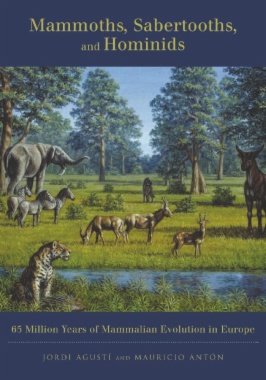

Mammoths, Sabertooths, and Hominids takes us on a journey through 65 million years, from the aftermath of the extinction of the dinosaurs to the glacial climax of the Pleistocene epoch; from the rain forests of the Paleocene and the Eocene, with their lemur-like primates, to the harsh landscape of the Pleistocene Steppes, home to the woolly mammoth. It is also a journey through space, following the migrations of mammal species that evolved on other continents and eventually met to compete or coexist in Cenozoic Europe. Finally, it is a journey through the complexity of mammalian evolution, a review of the changes and adaptations that have allowed mammals to flourish and become the dominant land vertebrates on Earth.
With the benefit of recent advances in geological and geophysical techniques, Jordi Agustí and Mauricio Antón are able to trace the processes of mammalian evolution as never before; events that hitherto appeared synchronous or at least closely related can now be distinguished on a scale of hundreds or even dozens of thousands of years, revealing the dramatic importance of climactic changes both major and minor. Evolutionary developments are rendered in magnificent illustrations of the many extraordinary species that once inhabited Europe, detailing their osteology, functional anatomy, and inferred patterns of locomotion and behavior. Based on the latest research and field work, Mammoths, Sabertooths, and Hominids transforms our understanding of how mammals evolved and changed the face of the planet.